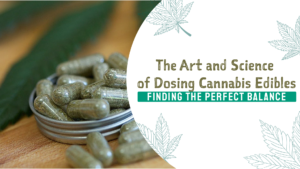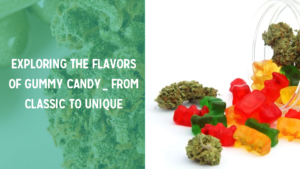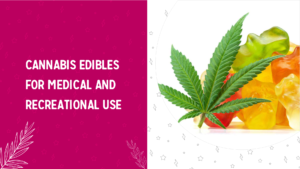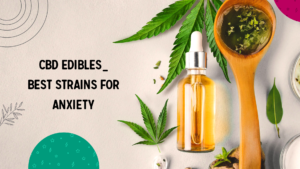
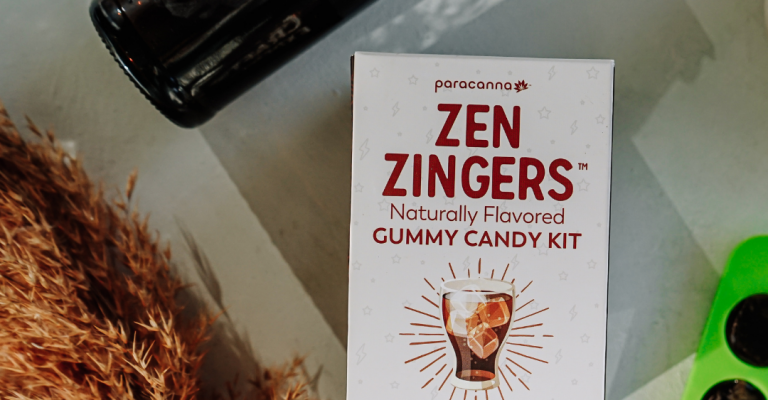
Long gone are the days where the only cannabis product you could get your hands on was bud. Today there’s a variable smorgasbord of cannabis products available. Two popular options are tinctures and edibles, and we’re going to help you decide which option is best for you.
What are tinctures?
Tinctures refer to a type of herbal extract that is made by soaking plant material in alcohol to draw out certain compounds from the plant. Tinctures have existed for thousands of years and are a particularly popular way to ingest herbal ingredients. They can be made from many different plants and are a popular way of extracting cannabis compounds.
Tinctures are consumed orally; in most cases, you simply place a few drops of a tincture on your tongue. It’s important to dose a tincture correctly, especially when it’s a cannabis tincture. Your cannabis tincture will have dosing instructions on the bottle, but you should also take into account your body size, experience with cannabis products, and metabolism when dosing.
The cannabinoid content of tinctures will depend on the type of plant used in the production process. If a high-THC cannabis plant was used, then you can expect the tincture to contain high levels of THC. If a hemp strain is used instead, then you will likely have a tincture high in CBD but with low or no THC.
What are edibles?
Edibles are a popular way to consume cannabis compounds. Like tinctures, they are consumed orally, but they are quite a different product.
Edibles are food products that contain cannabis compounds such as cannabinoids or terpenes. You’re probably most familiar with edible gummies, but there are many other types of edible foods, including:
- Cookies
- Candy
- Butter
- Chewing gum
- Drinks
- Chocolate
To consume edibles you simply eat them as you would any other food. Dosing will depend on the type of edible product you chose and its cannabinoid makeup. Edibles typically contain either THC, CBD, or a mixture of both. It’s important to read the label and consider your needs when deciding on an edible dose.
Edibles are typically produced by adding cannabinoid extract (e.g., CBD oil) to the ingredient list of an otherwise normal food product.
With our do it yourself gummy edible kits, you can use almost any type of tincture, oil, and concentrate.
Benefits
Because both tinctures and edibles have to pass through the gastrointestinal system to enter your body, they offer many of the same benefits. Swallowing cannabinoids has been found to provide medium effects for a longer period of time. Cannabinoids tend to reach their peak effects in the body at 1.5 – 3 hours after consumption ( 1). The gut also has a high metabolic rate, so you’re not going to get as strong an effect from tinctures or edibles as you would from more permeable consumption methods such as vaping or smoking (2, 3). When eating cannabinoids, you can expect roughly 6-20% of the compounds to reach your bloodstream.
Research tells us that cannabis and its compounds can induce some impressive medicinal effects. Consuming tinctures or edibles could help you to manage:
Tinctures
There are many reasons why people turn to tinctures as their cannabis product of choice. Tinctures are an easy and accessible way to consume cannabinoids and other cannabis compounds. Many people prefer them because they’re simple – you just place a few drops on your tongue and swallow.
Edibles
Edibles are gaining a real following thanks to their discrete nature, their taste, and their ease of consumption. Taking an edible can literally be as easy as eating candy, which also makes them a great, subtle way to consume cannabis.
The added ingredients in edibles can also help with taste, which can be an issue with alcohol-based tinctures.
Side effects
Cannabinoids can cause some side effects, so if they are an ingredient in tinctures or edibles, consumption of either product could result in those same side effects. Side effects of cannabinoids that you should be aware of include (11):
- Nausea
- Dizziness
- Diarrhea
- Lethargy
- Dry mouth
- Red eyes
- Slower reaction time
- Memory loss
Tinctures
Aside from the potential side effects of cannabinoids, tinctures themselves can also cause some additional symptoms.
- Tincture burns: Because of the high alcohol content of tinctures, they can result in ulcers developing in the mouth or stomach (12).
- Liver and kidney swelling: In extreme cases, the high alcohol content of tinctures can result in the liver and/or kidneys becoming inflamed.
- Strong cannabis taste: This is not so much a side effect, but it can be an aspect of tinctures that some people find unpleasant. Because tinctures are steeped in cannabis or hemp plant material, they tend to strongly taste like these plants.
- Incompatible for recovering alcoholics: High in alcohol content, tinctures are not a good option for those who refrain from consuming alcohol, particularly recovering alcoholics.
Edibles
Edibles can also induce their own side effects, although these are largely due to the regular food ingredients used. It’s important to look at the ingredient list of an edible before eating to check if there are any ingredients that you may be allergic or intolerant to. Common ingredients that people tend to react to include:
- Dairy products
- Oily foods
- Caffeine
- Gluten
- Fructose
- Nuts
Should I use tincture or edibles?
Deciding between tinctures or edibles really comes down to your personal preferences. Both products offer similarly-strengthed cannabinoid effects and release times, so you will want to look at other differences when deciding. Some key differences when deciding between tinctures or edibles include:
- Taste: Tinctures and edibles offer very different tastes. Tinctures tend to have a potent cannabis flavor profile, while edibles tend to taste like their food ingredients (e.g., candy, cookies).
- Side effects: It’s important to take into consideration the potential side effects of a product before deciding to consume it.
- Ease of use: Both tinctures and edibles are easy to use but in different ways. Edibles allow you to simply eat a piece of food, whereas tinctures allow you to control your dosage at a drop-by-drop level. Again, deciding between the two will come down to what’s more important to you.
In summary
When it comes to choosing between tinctures and edibles, the best option will be the one that best fits your needs and wants. Both tinctures and edibles are consumed orally, so you can expect similar cannabinoid results. However, there are some key differences between the two that could help to sway your decision.
Recent reviews
-
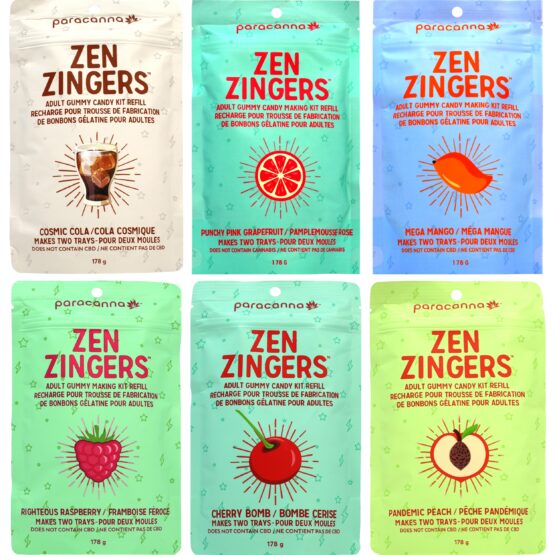 Refill Mixed 6 Pack
Rated 5 out of 5by facepersonface
Refill Mixed 6 Pack
Rated 5 out of 5by facepersonface -
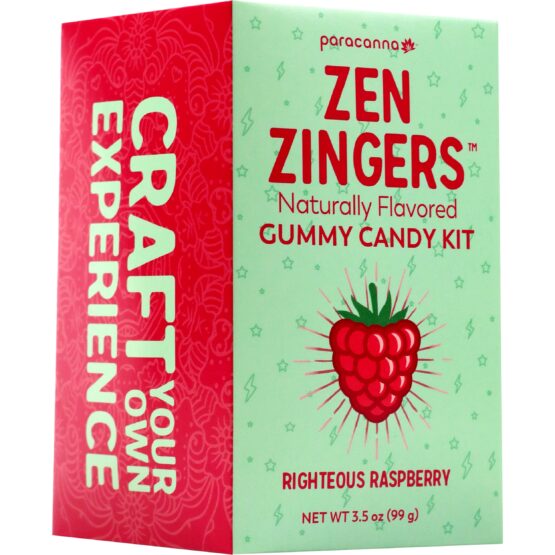 Righteous Raspberry Gummy Making Kit
by Ralph Linnmann
Righteous Raspberry Gummy Making Kit
by Ralph Linnmann
Recent Articles
Featured Products
-
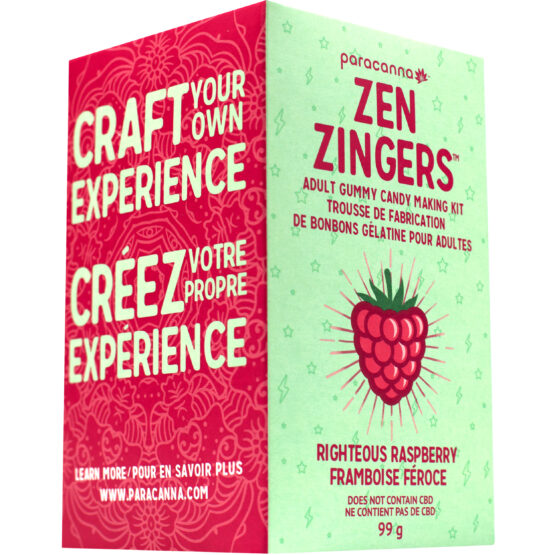
Righteous Raspberry Gummy Making Kit
Rated 5.00 out of 5$24.99 Add to cart -
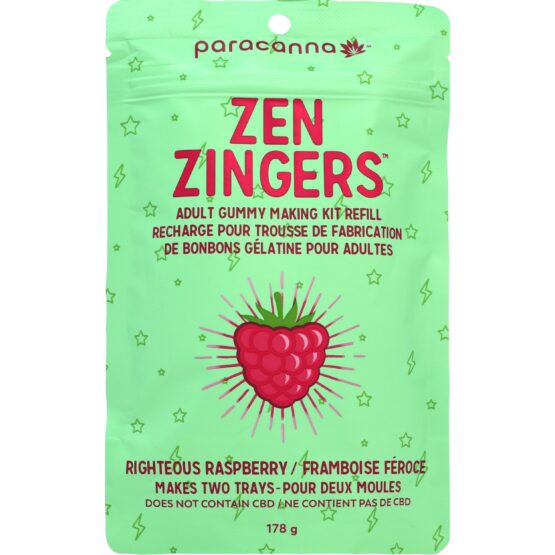
Righteous Raspberry Gummy Mix Refill
Rated 4.85 out of 5$18.99 – $68.37 Select options This product has multiple variants. The options may be chosen on the product page

